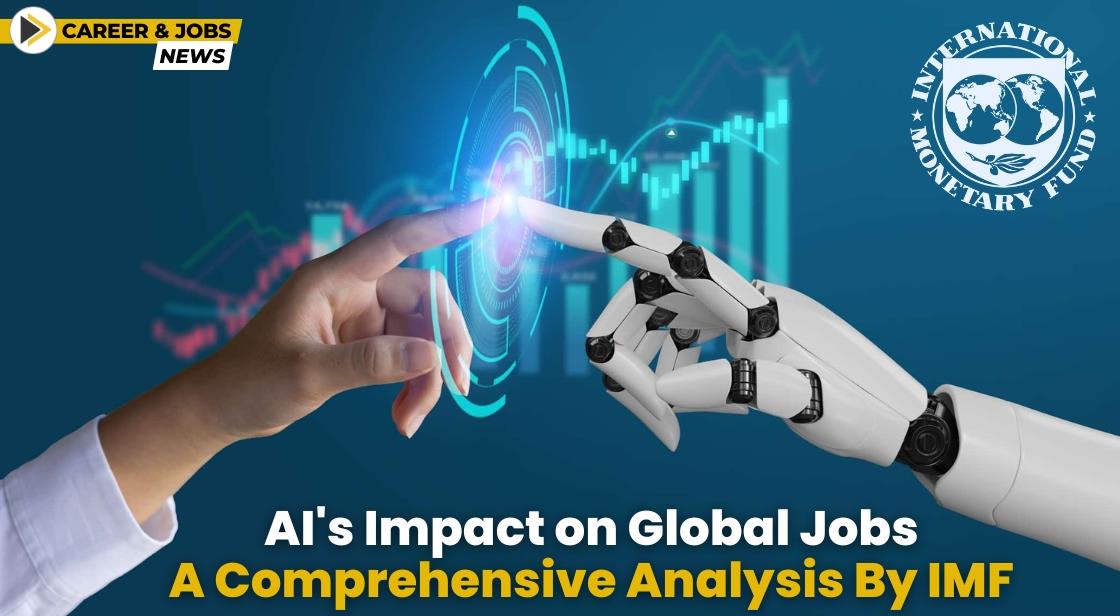AI's Impact on Global Jobs: A Comprehensive Analysis by International Monetary Fund

News Synopsis
Artificial intelligence (AI) is anticipated to impact nearly 40% of jobs globally, with advanced economies bearing a greater burden compared to emerging markets and low-income countries, reveals an insightful analysis by the International Monetary Fund (IMF).
IMF Managing Director Kristalina Georgieva underscored the potential exacerbation of overall inequality by AI and stressed the need for proactive policymaking to prevent technology from intensifying social tensions.
"In most scenarios, AI will likely worsen overall inequality, a troubling trend that policymakers must proactively address to prevent the technology from further stoking social tensions," stated Kristalina Georgieva in a blog post accompanying the study.
The specter of automation looms large as the International Monetary Fund (IMF) predicts that artificial intelligence (AI) could impact nearly 40% of global jobs. This impact is expected to be especially pronounced in advanced economies, with 60% of jobs potentially affected compared to the lower figures in emerging and low-income countries.
AI: Boon or Bane for Inequality?
While AI promises increased productivity and economic growth, it also raises concerns about exacerbating income inequality. IMF Managing Director Kristalina Georgieva warns that, "In most scenarios, AI will likely worsen overall inequality," prompting policymakers to take proactive measures to mitigate this troubling trend.
One key concern is how AI might amplify the advantage of high earners. If AI primarily complements highly skilled work, it could boost capital returns and widen the wealth gap. To counter this, Georgieva stresses the importance of "comprehensive social safety nets" and robust retraining programs to equip vulnerable workers for the changing job landscape.
Humans and Machines: Collaborating or Competing?
The IMF report predicts that, rather than entirely replacing jobs, AI is more likely to work alongside humans, augmenting capabilities and transforming workflows. However, the specific nature of this collaboration will vary across industries and economies.
Advanced economies, with their greater automation potential and reliance on knowledge-based work, are likely to see a higher degree of AI integration into the workforce. Emerging and low-income countries, on the other hand, may experience a slower and more nuanced impact, depending on their specific economic structures and technological adoption rates.
Global Discourse on AI Regulation
The IMF's findings resonate with the ongoing discussions on AI governance at the World Economic Forum in Davos, Switzerland. As companies increasingly invest in AI technologies, anxieties among workers about job displacement are mounting. Recent examples like Buzzfeed's use of AI for content creation and subsequent layoffs of news staff highlight the potential human cost of automation.
In response to these concerns, regulatory frameworks for AI are gaining traction. The European Union recently reached a tentative agreement on AI legislation, while the United States is actively debating its own approach to regulating this emerging technology.
In December, the European Union tentatively agreed on legislation outlining safeguards for AI, while the United States continues to deliberate on its federal regulatory approach to AI.
The Road Ahead: Embracing AI Responsibly
The rise of AI presents both opportunities and challenges for the global workforce. While job displacement remains a valid concern, particularly in certain sectors, AI also holds the potential to streamline processes, enhance productivity, and create new avenues for employment.
Navigating this complex landscape requires a concerted effort from policymakers, businesses, and educational institutions to ensure that AI is deployed responsibly and inclusively, fostering a future where humans and machines thrive together.









